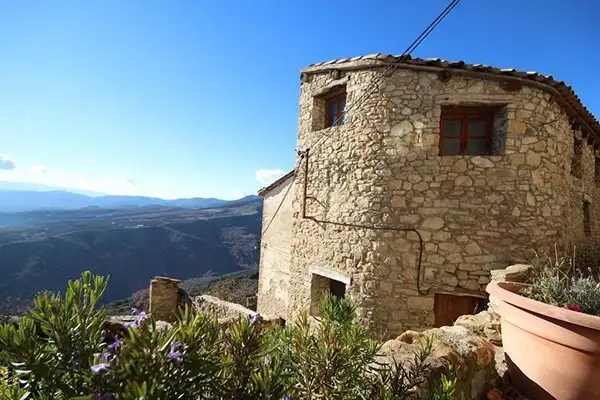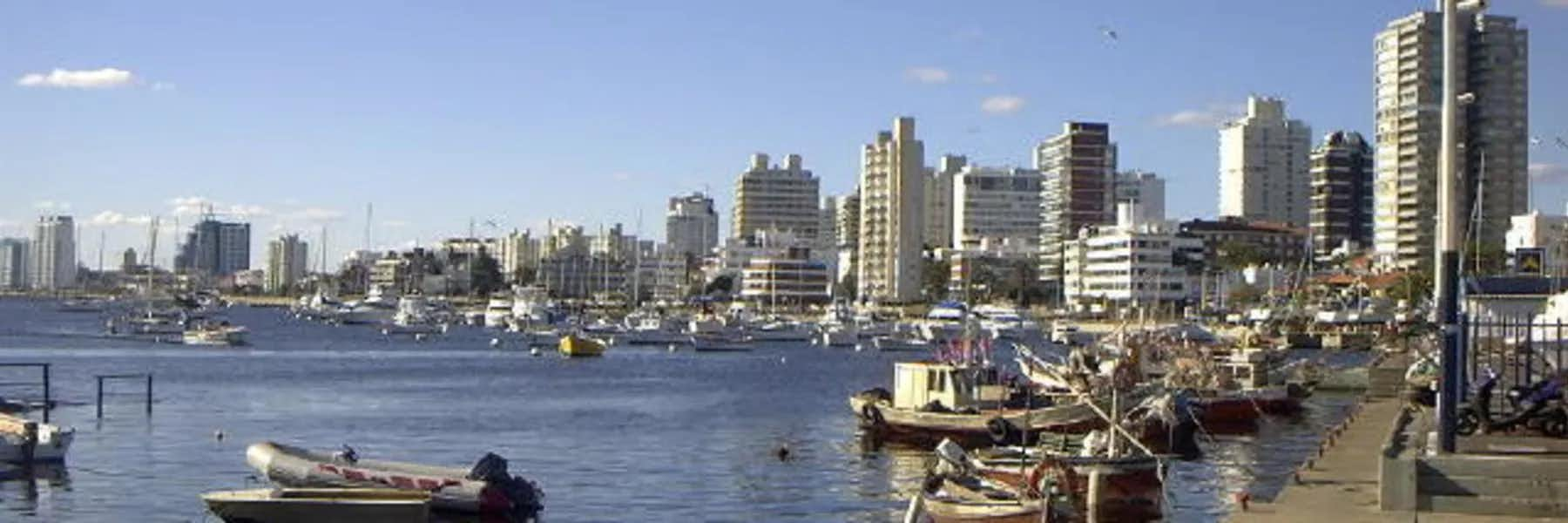Buying real estate overseas is fun and glamorous.
It can also be very profitable, but you need to be clear from the start what you want to get out of the property—and how much you are willing to put in.
First, you need to decide if you are purchasing as an investment or buying a second/retirement home.
You need to take out a piece of paper and ruthlessly profile yourself.
If you are buying purely for investment, your real estate choices should depend on your financial objectives, your existing portfolio (real estate, stocks, bonds, etc.), your tolerance for risk, and simply the reasons you're in the game.
Figuring out what kind of investor you are might seem like a simple task, but it's one worth spending time on. In the end, it will go a long way toward determining the type of properties you look at, and the type of property you'll eventually buy.
Although there are hundreds of factors that will eventually go into your final decision, figuring out the basics below will help you get started:
Your reasons for making the investment.
Your tolerance for risk, and how much you have to invest.
How you intend to finance the property.
The needs of your existing portfolio.
Your level of experience in the market.
The level of involvement you want to have managing the property.
Let's look at these one at a time.
There are many reasons for making an investment overseas, and with most people there are several factors at work.
I like to think of an investor's motivation as falling along an investment continuum. At one end of the continuum, there's the buyer who wants to use and enjoy the property, hold it for an indefinite period, and eventually pass it along to his heirs.
Eventual resale of the property is not an issue for this buyer. Arguably, this may not even qualify as an "investment" in the financial sense, but more of a long-term investment for the family. I've included it here as a point of reference for comparison purposes.
At the other end of the scale, there's the purchaser who only cares about the investment potential of the property. It's not important what type of property it is, where it is, or what it's for, as long as the potential for a good return is high. Some of these investors never even see their properties. Most members of my Real Estate Trend Alert (RETA) group who bought preconstruction in Brazil are only in it for the investment upside potential.
Free Report: Best Places in the World to Buy Real Estate
Free Report: Best Places in the World to Buy Real Estate
Sign up for IL's postcards and get the latest research on the best places in the world to retire. Including boots-on-the-ground insights on real estate and rental trends. Simply enter your email address below and we'll send you a FREE report - The World's Best Places to Buy Real Estate.

By submitting your email address, you will receive a free subscription to IL Postcards and special offers from International Living and our affiliates. You can unsubscribe at any time, and we encourage you to read more about our Privacy Policy.
You can find out more about Real Estate Trend Alert here.
Of course, there is an infinite number of gradients between the two. Many of you will fall somewhere in the middle: you want to buy a property you like in a place you enjoy visiting, with a reasonable potential for capital appreciation or income from rental returns.
Why does this matter? If you're on the far left of the scale and you've always dreamed of owning a piece of Mediterranean Europe, you may be interested in buying a home in a Sicilian or Catalonian hill town for less than $40,000. It will probably appreciate only modestly over time—and you'll never rent it—but that's not why you bought it. If you're on the far right side of the scale, this property would not be for you.

Your Tolerance For Risk
You need to ask yourself the question "How much money do I have to invest, and how much am I willing to put at risk?" This is important, since greater risks can generally reap higher rewards...and of course, can incur greater losses.
To answer the question, you need to consider several factors. Among these are the percentage of your overall assets required for a potential investment, how close you are to needing the money for retirement or another financial commitment (people five years from retirement will generally assume a lower risk than people 20 years away), and perhaps most importantly, your overall comfort level with financial risk.
Why is comfort level important? One obvious thing is that you'll be anxious about the investment if you've exceeded your comfort zone. But much more important than your loss of sleep—at least from a financial perspective—is that being uncomfortable with an investment can cause you to make hasty or rash decisions if the market fluctuates in the future.
How does this relate to buying an investment property? Actually, in the same way that it relates to any investment. You choose an investment that matches your risk profile. For example, buying preconstruction can mean you double, treble or even 5X your money, fast...but it comes with greater risk than buying a completed home in an established community.
Historically, due to their relative instability and lack of regulation, investing in developing countries is generally riskier than in First World, developed countries. That's not how the world looks to me today. I see the developed markets as overpriced and at risk of a significant downward correction. And I see strong opportunities to get in at the ground floor in developing markets.
You are supposed to get higher returns for taking higher risk. The world is upside down right now in this regard. The high-risk, developed world is showing measly returns.
Free Report: Best Places in the World to Buy Real Estate
Free Report: Best Places in the World to Buy Real Estate
Sign up for IL's postcards and get the latest research on the best places in the world to retire. Including boots-on-the-ground insights on real estate and rental trends. Simply enter your email address below and we'll send you a FREE report - The World's Best Places to Buy Real Estate.

By submitting your email address, you will receive a free subscription to IL Postcards and special offers from International Living and our affiliates. You can unsubscribe at any time, and we encourage you to read more about our Privacy Policy.
Your Options For Financing
Your financing options will, to some extent, influence what kind of properties you will be in the market for.
For example, if you have cash to spend, you can really invest in anything. On the other hand, if you need finance and don't own property to use to secure a loan back home, you may want to focus your attention on projects where developer financing is available—as is often the case with the off-market deals I bring RETA members—or on teaming up with other investors, or on "off-plan" investments where you don't need all of the money up front.
There are places on my beat where North Americans can lock down attractive bank financing. For example, in Portugal, where foreigners can secure 80% LTV mortgages at rates of 1% or even lower.
Don't forget that financing becomes even more attractive when borrowing in currencies which are expected to fall in value against the dollar, since you'll be paying the loan back with the equivalent of fewer dollars.
What Fits Well in Your Existing Portfolio?
To be well-balanced, your investment portfolio should have a range of assets that includes real estate, and your real estate portfolio should have a mix of properties, too.
Within real estate holdings, many investors like to create a mix similar to that of their overall portfolio. That is, they mix aggressive investments of a higher risk with longer-term, steady-growth investments. For example, if you're 20 years from retirement—or otherwise needing the capital—then your investment mix would include a higher percentage of aggressive real estate investments focused on growth and capital gain.
On the other hand, if you're close to retirement, your real estate investments should lean closer to more conservative, steady-growth, income-producing properties.
Investment in undeveloped raw beachfront close to Tulum on Mexico's Riviera Maya 20 years back is a good example of an aggressive investment. Values increased by 20 times or more as the Path of Progress rolled through...but that's because the Path of Progress 20 years back was not a sure thing.
Crisis investing in Venezuela today is another good example of an aggressive-style investment.
On the other hand, an apartment in an established European second city would be considered a more conservative buy. Europe's top-tier cities like Paris or London feel frothy right now as values have been driven so high by the perception that they are a safe haven.

Free Report: Best Places in the World to Buy Real Estate
Free Report: Best Places in the World to Buy Real Estate
Sign up for IL's postcards and get the latest research on the best places in the world to retire. Including boots-on-the-ground insights on real estate and rental trends. Simply enter your email address below and we'll send you a FREE report - The World's Best Places to Buy Real Estate.

By submitting your email address, you will receive a free subscription to IL Postcards and special offers from International Living and our affiliates. You can unsubscribe at any time, and we encourage you to read more about our Privacy Policy.
Your Level of Experience in The Market
The level of experience of an investor should match the type of investments they are making. New investors will be best-suited to—and more comfortable with—some of the less complex investments.
For example, undertaking a development project on your own in a far-flung corner of the world may be fine if you have some experience in the country, know the language, and have participated in this type of investment before, but may not be right for your first overseas experience.
Managed vacation rentals are a relatively safe and easy investment, as are investments in businesses in which you have significant experience—like a B&B—although a B&B requires your personal involvement.
Your Desired Level of Involvement
Much like investing in the financial markets, the level of participation you can apply to the venture tells you something about the type of investment you should be making. There are investments that require minimum personal involvement, and others that require a lot of your attention.
To give an example of low involvement, you might consider investing in a vacation rental in a choice resort location. If you buy a quality property and arrange for a trustworthy property manager, you can afford to be quite "hands-off." The property manager will keep it rented for you, take care of any maintenance, and in many cases do the advertising that keeps the renters coming in. You could enjoy the property yourself from time to time, and otherwise relax and collect your share of the rental income.
As we move up the scale of involvement, we see that those who want to buy a property and "flip" it when the price rises, require a little more active participation, as they need to monitor the market at least occasionally and be ready to sell when the time is right.
Requiring even more of your attention are restoration projects, developing your own property, or managing your own business. These are not necessarily difficult—depending on your experience—but you have to be able to devote the appropriate amount of time to make the investment work.
Before you buy, think carefully about the time you can spend monitoring or managing your investment.
Determining what kind of real estate investor you are takes into account many factors. You should rate and profile yourself. When you have a better idea of what kind of global real estate investor you are, you'll have an easier time narrowing down your many options.
Happy, healthy, and successful investing. Enjoy the journey.
Perhaps I’m biased, but I think my book Profit Principle is an excellent primer for anyone interested in buying a property overseas. That’s why I’m giving away copies (just cover the $5.97 shipping) to all new readers of my e-letter. Click here to claim your copy.
Your Comments and Questions
Question from Claudia: Hello, I love reading your stuff but I am afraid to take the plunge. I have a rental property at the Jersey Shore that I am currently upside-down on. I bought at the top of the market in 2007. It rents well but still does not cover the "nut." Any suggestions on how to start small for someone with limited assets?
Ronan's response: A good start point would be going on a few RETA Members-Only Scouting Trips (MOSTs). I arrange for these trips for members of my Real Estate Trend Alert... A trip like this allows you to visit and vet an opportunity in the company of likeminded investors. You get to share ideas and get the insights and experience of other members. Many of the trips are free, others are heavily subsidised by developers. And you could come to the annual RETA Gathering. That's where I bring all my contacts together for an informal get-together where we share ideas and look at the latest deals. Then you can focus in on your preferred locales and deal types. One step at a time...and each of these steps can be a lot of fun.
You can join RETA right here. And you'll get word of every forthcoming Members-Only Scouting Trip right to your inbox.
Connect with us on Instagram Ronan's Instagram or Facebook
Related Articles
The 15 Best Places to Invest in Real Estate
7 Incredible Day Trips From Your Marina Condo
Powerful Profits on Mérida’s Closest Beach
Free Report: Best Places in the World to Buy Real Estate
Free Report: Best Places in the World to Buy Real Estate
Sign up for IL's postcards and get the latest research on the best places in the world to retire. Including boots-on-the-ground insights on real estate and rental trends. Simply enter your email address below and we'll send you a FREE report - The World's Best Places to Buy Real Estate.

By submitting your email address, you will receive a free subscription to IL Postcards and special offers from International Living and our affiliates. You can unsubscribe at any time, and we encourage you to read more about our Privacy Policy.
